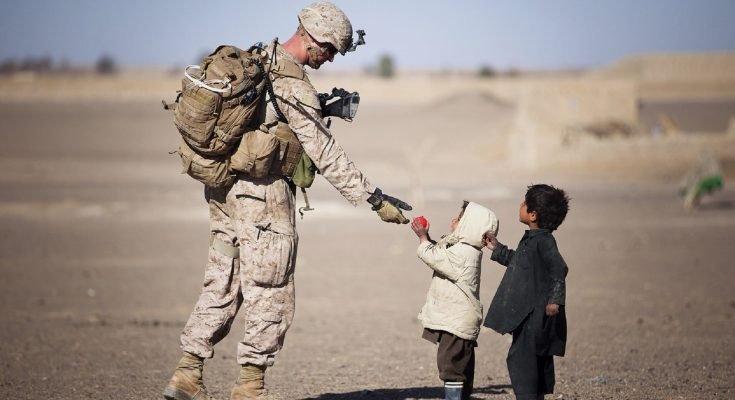Wounded veterans face immense challenges as they transition from military to civilian life. Financial obstacles can exacerbate difficulties already present from injuries sustained in service. Scholarship programs aim to ease this burden and empower wounded warriors to continue their education and career pursuits. This extensive guide explores wounded warrior scholarship options available for the 2024 award year. Read on to inform your decision-making and determine which opportunities might best support your goals.
What is a Wounded Warrior?
Before delving into specific scholarships, it’s important to define who qualifies as a wounded warrior. The term broadly refers to service members who incurred a physical or mental wound, injury, or illness while serving in the military after September 11, 2001. This includes veterans disabled during deployment to conflicts in Iraq and Afghanistan.
Physical Injuries
Many wounded warriors sustained physical injuries from combat that require ongoing medical treatment or cause permanent disability. Common examples include:
- Traumatic brain injuries from IED explosions or other blasts
- Loss of limbs from explosions or accidents
- Spinal cord or nerve injuries
- Burns over large portions of the body
- Extensive soft tissue damage
These types of injuries may limit mobility and require assistive devices, physical therapy, prosthetics, or surgery. Chronic pain is also a reality for many wounded warriors.
Hidden Wounds
Post-traumatic stress disorder (PTSD) and other “invisible wounds” also classify veterans as wounded warriors. These include:
- Depression, anxiety, and other mental health conditions resulting from trauma
- Traumatic brain injuries without visible scarring that still impact cognitive function
- Moral injuries relating to the loss of comrades or ethical dilemmas faced in war
While unseen, these injuries are no less debilitating and require treatment, accommodation, and support.
Major Wounded Warrior Scholarship Programs
The following represent some of the largest and most well-known scholarship opportunities available specifically for wounded veterans:
Wounded Warrior Project Scholarships
Overview
The Wounded Warrior Project (WWP) is a major non-profit supporting injured service members. Their scholarship program provides up to $5,000 per academic year for wounded warriors enrolled in a degree, certificate, or license program.
Eligibility
To qualify for a WWP scholarship, applicants must:
- Be wounded in military service on or after September 11, 2001
- Possess a service-connected disability rating of 30% or greater from the Department of Veterans Affairs (VA)
- Be accepted into an accredited program for an associate’s, bachelor’s, master’s, doctoral or certificate program
- Maintain satisfactory academic progress
Application Process
The application period for 2024 WWP scholarships opens in fall 2023. Applicants submit an online application, including documentation of their disability rating, enrollment verification, and personal statement. Awards are determined based on need and merit.
Disabled Veterans National Foundation Scholarships
Overview
The Disabled Veterans National Foundation (DVNF) provides scholarships specifically for service-disabled veterans and their dependents pursuing postsecondary education. Awards range from $500 to $3,000.
Eligibility
To qualify for a DVNF scholarship, applicants must:
- Be a service-disabled veteran or dependent/spouse of a service-disabled veteran
- Have a documented service-connected disability rating of 30% or higher from the VA
- Secure enrollment as a full-time or part-time student for the upcoming academic year
- Demonstrate financial need
Application Process
The DVNF scholarship application period opens in early 2023. Requirements include official transcripts, acceptance letters, FAFSA reports, and short essays. Selection is based on merit, need, and demonstration of the values of service and sacrifice.
Other Notable Programs
Several other organizations offer generous support tailored specifically to wounded warriors:
- The Fisher House Foundation provides up to $40,000 per year for post-9/11 wounded veterans or military caregivers.
- The Semper Fi Fund awards up to $5,000 annually for wounded or critically ill Marines, Navy hospital corpsmen, and Navy chaplains.
- The American Legion sponsors the National Commander’s Scholarship for children of wartime veterans with service-connected disabilities.
Thoroughly researching eligibility criteria is important to determine the best fitting option(s) for each individual situation. Pursuing multiple awards can layer funding sources.
General Scholarships that Consider Military Service
While designed for all students, several large scholarship programs give preference or priority consideration to veterans, including wounded warriors:
The Jack Kent Cooke Foundation Young Scholars Program
This program provides up to $40,000 per year for high-achieving high school seniors with financial need pursuing a bachelor’s degree. Military experience is one of several factors increasing the chances of selection.
Coca-Cola Scholars Program
One of the nation’s largest and most prestigious scholarships awards 150 graduating high school seniors up to $20,000 each. Applicants indicating military family experience receive additional review during the selection process.
Gates Millennium Scholars
This full-ride program funded by the Bill & Melinda Gates Foundation supports outstanding minority students with high financial needs. Veterans from minority backgrounds face both opportunity gaps addressed by this award.
ROTC and Service Academy Programs
Military-affiliated scholarships provide full or partial tuition assistance in exchange for future military service commitments. Examples include ROTC programs through individual branches as well as the U.S. Military, Merchant Marine, and Coast Guard Academies. These directly serve to develop new officers while aiding current wounded warriors.
Taking time to craft compelling personal statements highlighting military experience and values increases the chances of success when applying to broader scholarship programs with military consideration components. Pursuing multiple options provides more chances to earn support.
Applying for VA Education Benefits
In addition to independent scholarships, the U.S. Department of Veterans Affairs (VA) administers education programs specific to post-9/11 wounded veterans that can fully fund educational costs:
Chapter 31 Vocational Rehabilitation and Employment (VR&E)
VR&E, also called the VetSuccess program, provides a living stipend plus covers all education expenses like tuition, books, fees, and supplies for qualifying injured veterans pursuing a vocational goal. The goal can be degree completion for career advancement or certification for career change due to the disability. VR&E generally provides up to 48 months of support, but additional months may be authorized beyond that.
Chapter 33 Post-9/11 GI Bill
The Post-9/11 GI Bill pays tuition and fees directly to the school for eligible recipients up to the maximum in-state public undergraduate rate. Housing and book allowances are also provided based on the Department of Defense rates for the zip code of the institution. Veterans may transfer unused GI Bill benefits to qualifying dependents as well.
To utilize Chapter 33 benefits, veterans must have served a minimum of 90 aggregate days on active duty after September 10, 2001, and received an honorable discharge. A service-connected disability is not required, though qualifying wounded warriors can leverage both Chapters 31 and 33 together.
The application process for VA education benefits involves filling out an online application, submitting official military documentation of service, and working with a VA education case manager. Benefits are generally paid directly to the school each semester or term.
Selecting the Right Program of Study
When starting or continuing higher education, wounded warriors should strongly consider career fields with expanding opportunities and growth projections:
Healthcare
As the population ages, careers in nursing, respiratory therapy, radiology, occupational/physical therapy, and other medical roles will be in high demand. VA hospitals specifically aim to hire veterans.
Technology
Fields like cybersecurity, data science, cloud computing, and software engineering feature low unemployment rates and remote work possibilities well-suited to some disabilities. CompTIA, Cisco, and Microsoft also offer valuable IT certifications.
Trade Skills
Electricians, plumbers, HVAC technicians, carpenters, machinists, and diesel mechanics command competitive salaries nationally, and apprenticeships provide on-the-job training.
Public Service
Degree options preparing for law enforcement, firefighting, park ranger roles or government jobs leverage military experience and values while supporting communities. Teacher certification allows for an impact on future generations.
Business
For veterans interested in leadership, entrepreneurship, or working within a business environment, programs in accounting, management, hospitality, entrepreneurship, or related fields create new opportunities. An MBA furthers prospects.
Researching labor market reports, speaking with career counselors, and connecting with professional associations helps assess career viability and fit with abilities, interests, and transition goals. Scholarship applications require justifying educational plans.
Maintaining Scholarship Eligibility
Once awarded funding, wounded warriors must satisfy certain criteria to retain scholarships:
Enroll Full-Time or Part-Time
Enroll as required each semester or term as outlined by the scholarship, usually taking at least 12 credits as a full-time undergraduate or six credits part-time.
Maintain Satisfactory Academic Progress
Meet the minimum GPA requirement, typically a cumulative 2.0 to 2.5 GPA. Submit transcripts/reports after each term.
Complete the Program on Time
Finish the academic program within the specified time frame, such as four years for a bachelor’s degree.
Notify of Any Changes
Inform the coordinator of withdrawals, changes in enrollment status, major, etc.
Submit Progress Reports
Provide an annual or semester update on achievements and challenges to showcase continued merit.
Communicate Proactively
Contact administrators regarding issues that could affect meeting deadlines to discuss options like a deferral.
Express Gratitude and Maintain Relationships
Send thank you notes after graduating and remain involved through alumni networks for future assistance.
Diligent effort in satisfying these best practices enhances the likelihood that wounded warriors can retain scholarship funding for their entire academic program. Adhering to eligibility standards achieves the benefit of full financial support through graduation.



